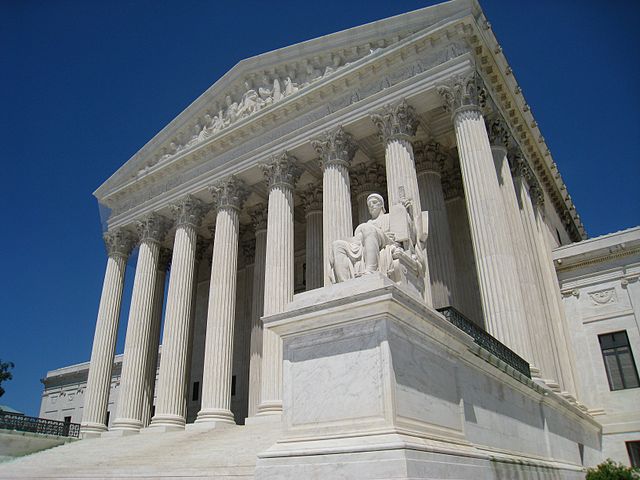Immigration
U.S. Supreme Court upholds Trump travel ban

The restrictions forbid most citizens of Iran, Libya, Syria, Yemen and Somalia from entering the United States. It also blocks travelers from North Korea and some Venezuelans. (Photo By Daderot – Own work, Public Domain)
The Supreme Court of the United States has ruled in favour of travel restrictions on residents from seven countries, five of which are predominantly Muslim.
The court’s nine justices voted 5-4 in favour of the restrictions imposed by U.S. President Donald Trump, which target travelers from Iran, Libya, Syria, Yemen, Somalia, Venezuela and North Korea.
The restrictions forbid most citizens of Iran, Libya, Syria, Yemen and Somalia from entering the United States. It also blocks travelers from North Korea and some Venezuelans.
In a Presidential Proclamation issued last September, President Trump wrote that the restrictions were based on national security concerns, saying the countries targeted “remain deficient at this time with respect to their identity-management and information-sharing capabilities, protocols, and practices.”
“In some cases, these countries also have a significant terrorist presence within their territory,” he added.
Critics of the ban, however, have pointed to Trump’s call for a ‘total and complete shutdown’ of Muslims entering the United States when he was campaigning for the presidency as evidence the ban is rooted more in religious discrimination than concerns for national security.
Two prior attempts by the Trump administration to introduce the restrictions were blocked by lower courts, where they were challenged on the grounds the U.S. Constitution’s First Amendment prohibited the government from favouring one religion over another, among other arguments.
The U.S. Supreme Court upheld the restrictions contained in his Presidential Proclamation last September.
Majority finds restrictions ‘neutral’, minority targets their ‘anti-Muslim animus’
In its ruling Tuesday, the majority said the president’s earlier comments did not undermine his executive authority and responsibility for immigration.
“We must consider not only the statements of a particular President, but also the authority of the Presidency itself,” wrote Chief Justice John G. Roberts, Jr.
The majority found the restrictions were neutral when viewed apart from Trump’s statements, and legitimate in terms of national security.
“The entry suspension is an act that is well within executive authority and could have been taken by any other president — the only question is evaluating the actions of this particular president in promulgating an otherwise valid Proclamation,” wrote Roberts.
The majority opinion, which was supported by Justices Anthony Kennedy, Clarence Thomas, Samuel Alito Jr. and Neil Gorsuch, was condemned by their fellow justice, Sonia Sotomayor, in her minority opinion.
“A reasonable observer would conclude that the Proclamation was motivated by anti-Muslim animus,” she wrote. “The majority holds otherwise by ignoring the facts, misconstruing our legal precedent, and turning a blind eye to the pain and suffering the Proclamation inflicts upon countless families and individuals, many of whom are United States citizens.”
President Trump’s administration heralded the court’s decision in a statement, calling it a “tremendous victory for the American people and the Constitution.”
“This ruling is also a moment of profound vindication following months of hysterical commentary from the media and Democratic politicians who refuse to do what it takes to secure our border and our country,” the statement added.
The Supreme Court’s decision follows a week that saw President Trump forced to retreat from his ‘zero tolerance’ policy that separated children of immigrants from their parents when families crossed illegally into the United States from Mexico.
To find out if you are eligible for Canadian immigration, complete a free online assessment.
© 2018 CICNews All rights Reserved





















